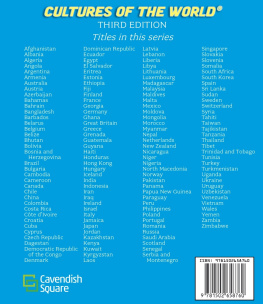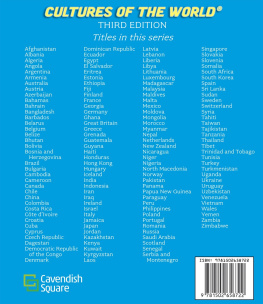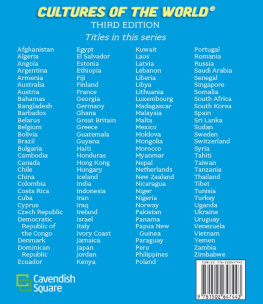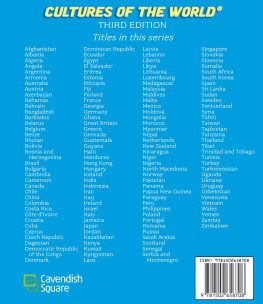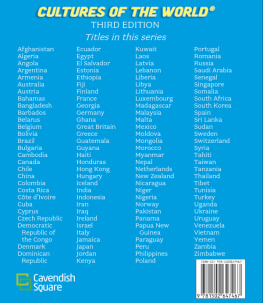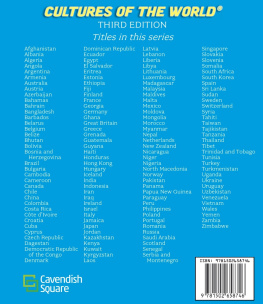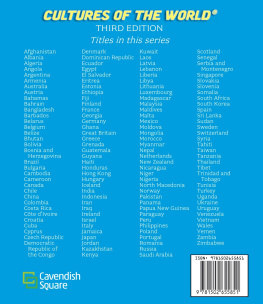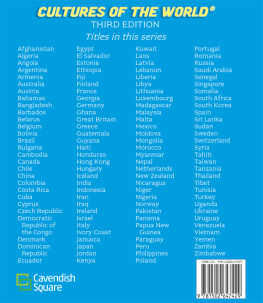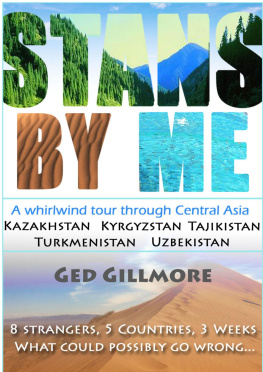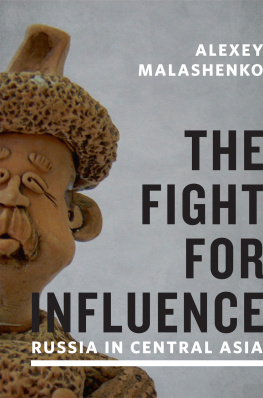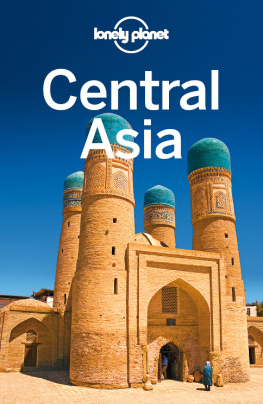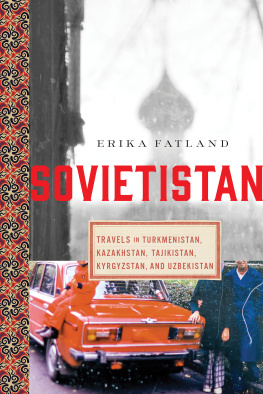
Published in 2021 by Cavendish Square Publishing, LLC
243 5th Avenue, Suite 136, New York, NY 10016
Copyright 2021 by Cavendish Square Publishing, LLC
Third Edition
No part of this publication may be reproduced, stored in a retrieval system, or transmitted in any form or by any meanselectronic, mechanical, photocopying, recording, or otherwisewithout the prior permission of the copyright owner. Request for permission should be addressed to Permissions, Cavendish Square Publishing, 243 5th Avenue, Suite 136, New York, NY 10016. Tel (877) 980-4450; fax (877) 980-4454.
Website: cavendishsq.com
This publication represents the opinions and views of the author based on his or her personal experience, knowledge, and research. The information in this book serves as a general guide only. The author and publisher have used their best efforts in preparing this book and disclaim liability rising directly or indirectly from the use and application of this book.
All websites were available and accurate when this book was sent to press.
Library of Congress Cataloging-in-Publication Data
Names: Knowlton, MaryLee, 1946 author. | Nevins, Debbie, author.
Title: Turkmenistan / MaryLee Knowlton and Debbie Nevins.
Description: Third edition. | New York: Cavendish Square Publishing, 2021. | Series: Cultures of the world | Includes bibliographical references and index.
Identifiers: LCCN 2020042523 | ISBN 9781502658760 (library binding) | ISBN 9781502658777 (ebook)
Subjects: LCSH: TurkmenistanJuvenile literature.
Classification: LCC DK933 .K58 2021 | DDC 958.5dc23
LC record available at https://lccn.loc.gov/2020042523
Writers: MaryLee Knowlton; Debbie Nevins, third edition
Editor, third edition: Debbie Nevins
Designer, third edition: Jessica Nevins
Picture Researcher, third edition: Jessica Nevins
PICTURE CREDITS
The photographs in this book are used with the permission of: Cover E_Photos/.
Some of the images in this book illustrate individuals who are models. The depictions do not imply actual situations or events.
CPSIA compliance information: Batch #CW21CSQ: For further information contact Cavendish Square Publishing LLC, New York, New York, at 1-877-980-4450.
Printed in the United States of America


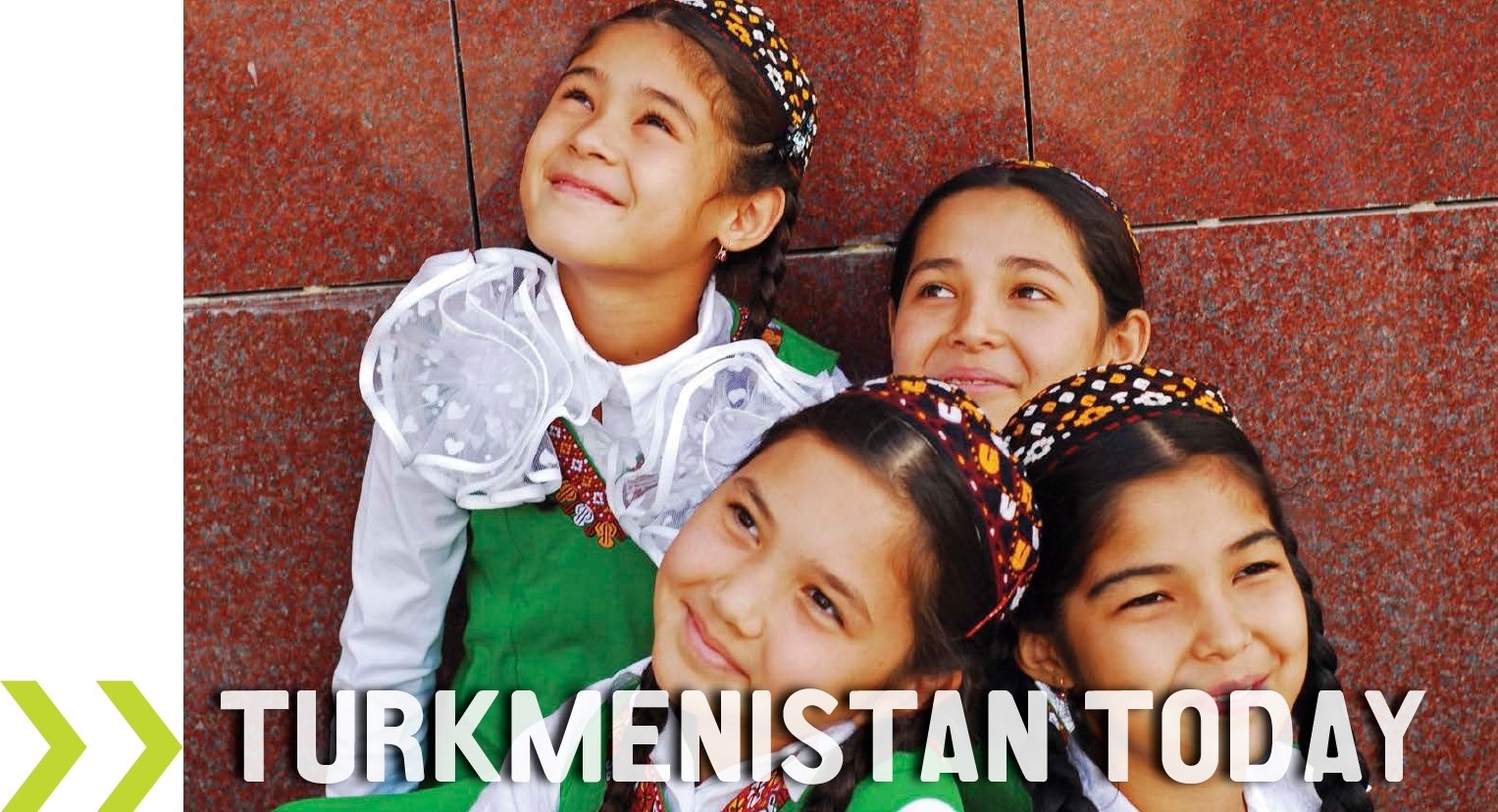
T URKMENISTAN IS OFTEN CALLED A HERMIT NATION, A secretive, closed society. Its a nation in Central Asia, which is already a littleknown region to many Westerners, and the countrys isolation only adds to its mystery. Closer examination reveals a curious authoritarian culture that foreigners might not understand. However, real people live real lives in this distant, strange land. To them, it isnt strange; its simply home.
Turkmenistan is a relatively new nation, carved out of the desert lands of Central Asia by the Soviets in the early 20th century. It was forced to spend most of that century as a communist Soviet republic, during which time the people had Russian language and culture imposed upon them. It was finally liberated when the Soviet Union collapsed in the early 1990s.
The Turkmen culture itself is quite ancient, born of nomadic peoples whose way of life harmonized with the land and the seasons. It was a lifestyle that worked well for many centuries until invading powers forced the people to adjust to new ways that worked against nature and against their heritage.
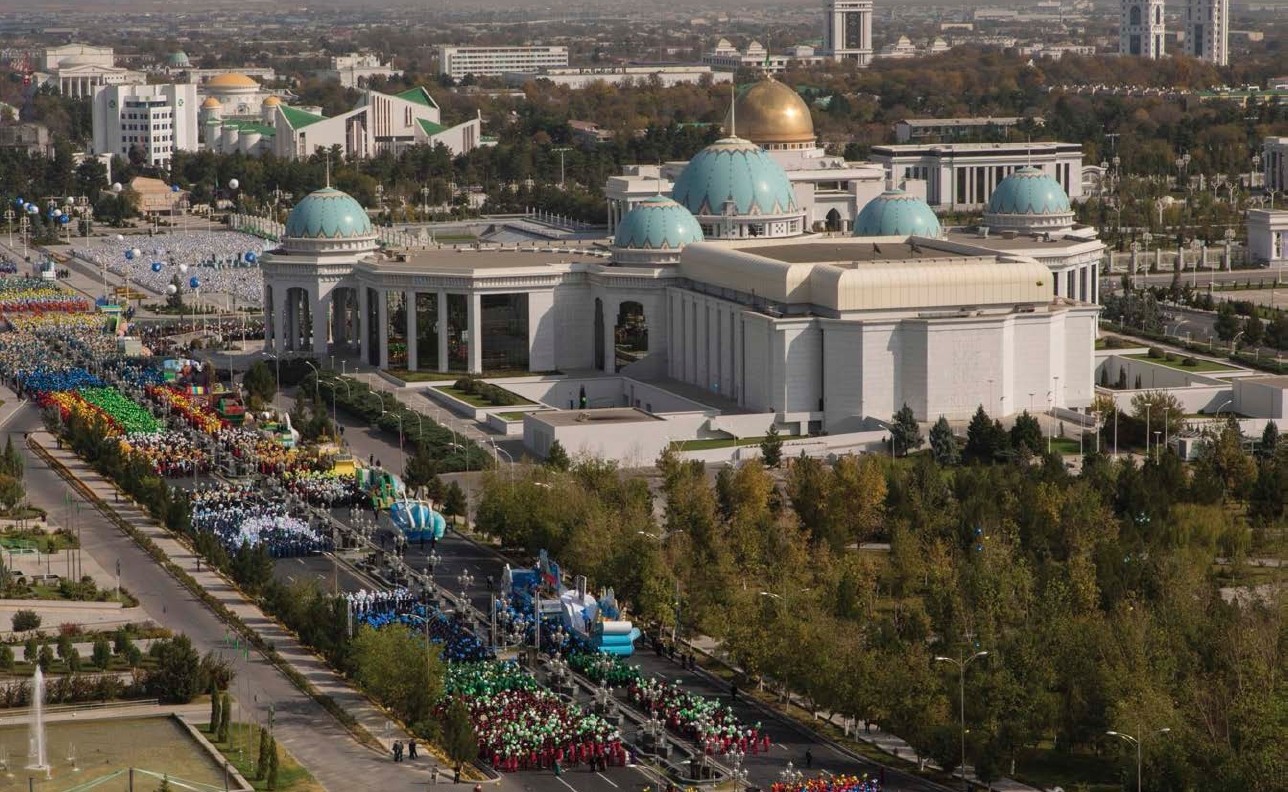
Crowds celebrate Independence Day outside of the presidential palace in Ashgabat, the capital of Turkmenistan.
Upon gaining independence in 1991, Turkmenistan could have tried to recoup that heritage, but times had changed, and perhaps too much damage had been done. Since becoming its own country, Turkmenistan has been under complete totalitarian rule. First, it was ruled by Saparmurat Niyazov, a man who called himself Turkmenbashi, the Father (or Leader) of all Turkmen. Under his increasingly bizarre leadership, the economy faltered and the country became more isolated from its neighbors and other potential allies. In his time, he was regarded as one of the worlds most totalitarian, despotic, and repressive dictators. He built absolute power through what is called a cult of personality, a phenomenon in which unscrupulous leaders are idolized in a culture of hero-worship. This doesnt happen by accident; state-supported propaganda works insidiously to build an aura of invincibility around the leader. Indeed, the Turkmenistani people came to regard Turkmenbashi as almost a god, which seems to be the way he regarded himself.
He used his absolute power to impose his peculiar ideas on the populace. For example, he mandated that a book he had authored be the countrys primary educational and life guidance text. He closed many hospitals around the country to compel people to come to Ashgabat, the capital city, for all their healthcare needs. He slashed pension benefits to the elderly but spent lavishly to construct hundreds of enormous, gleaming white marble buildings in Ashgabat.
When Niyazov died in 2006, any hopes for a return to a normal government were quickly dashed. His successor, Gurbanguly Berdimuhamedov, quickly built his own cult of personality and continued on in the authoritarian manner.
What the Turkmenistani people actually think of him, or of their government in general, is hard to gauge. For one thing, no freedom of expression is allowed. Dissidents are dealt with very harshly, which intimidates and suppresses others. People who live in such places tend to forget how to think for themselves. With no opposing viewpoints, a totally state-controlled media (and absolutely no foreign media), a tightly censored internet, and virtually no exposure to other cultures, people lose the ability to formulate critical thoughts. Its simply a survival mechanism, and it is alive and well in Turkmenistan.
Berdimuhamedovs intense control over his nation has created a very stable country in an unstable region. To its southeast, Turkmenistan borders Afghanistan, one of the worlds most volatile, unpredictable nations. That battleweary country, torn by decades of civil war and outside interference, is ruled more by local warlords than by its national government. Parts of Afghanistan are largely under the control of the Taliban, a militant Islamic fundamentalist political organization known for its extremely strict interpretation of Islam. Its also well known for its brutality, particularly toward women.
Turkmenistan is an officially neutral country. It does not participate in any sort of regional political alliances or security arrangements. The nations muchvaunted neutrality contributes to its isolation. It also means that Turkmenistan has to rely solely on its own power to prevent Afghanistans insurgency from crossing its border.
Like all of its Central Asian neighbors, Turkmenistan is a primarily Muslim country. However, its government is secular, and it works vigorously to prevent any expression of Islamic fundamentalism from gaining power. The tense situation in Afghanistanand in some other countries in the region, where fundamentalism is growingis therefore a matter of great concern to the Berdimuhamedov regime.

